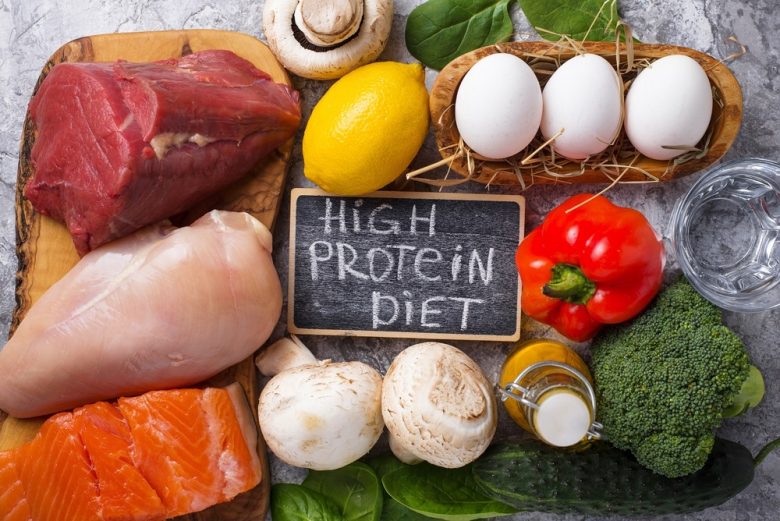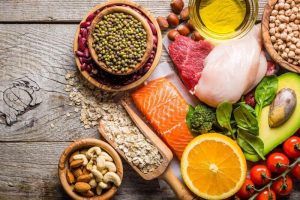Have you been wondering how you may positively increase your energy levels, improve your fitness standards, and enhance your health? If yes, there is a solution that you’ve probably never thought about—a5. a high-protein diet. Because of the overwhelming number of dietary patterns people follow today, protein has become the most prominent nutrient and is capable of so much more than just building muscles. It’s not only about just bulking up; it’s about staying satisfied for longer periods of time and helping process necessary functions of the body.
Many people nowadays are coming to respect the important role that protein can play in their diets. No matter whether you are an athlete looking to spend more energy and gain strength or an ordinary person who wants to reduce weight but still has enough energy, an increasing protein rate does matter. Let us improve our understanding of the needs behind this dietary pattern and reveal its many benefits.
What is the Mechanism Behind the High-Protein Diet?
A high-protein diet involves the consumption of higher amounts of protein foods. This macronutrient is important in most formation processes, such as muscle generation and regeneration. To elaborate on this, the usual caloric consumption accelerates the basic metabolic rate. With regards to protein consumption, the body transforms into a state of higher thermogenesis. This implies the consumption of many more calories than are needed for simple activities such as eating. Consequently, metabolism receives quite a vigorous boost.
Besides, protein also helps in the regulation of vitamins and hormones associated with hunger. As compared to carbohydrates and fats, you tend to stay full for a longer time after eating protein-rich foods. More protein also helps in controlling diabetes. It keeps energy levels steady throughout the day, eliminating glucose spikes and crashes, which are common with a high-carbohydrate diet. This innovative and unique way allows people to lose weight and fulfill their nutritional requirements.
Benefits of a High-Protein Diet:
High-protein diets have a multitude of different advantages and the building of muscle is only one of them. An increased muscle mass and strength is perhaps the most important reason. If your diet is supplemented with enough protein, your body will do a much better job of healing and building tissues. Even people who are trying to lose weight can be happy on a high-protein diet. Protein helps in making a person feel satiated for an increased amount of time. This very likely leads to lower calorie consumption during the day.
Additionally, protein is important to one’s bones. It has been shown that higher protein intake can help to mitigate the reduction of bone density with aging, which helps lower the incidence of fractures. High-protein diets have also been shown to lower the risks of chronic diseases such as cardiovascular disease and diabetes. In doing so, you promote positive health outcomes as you replace processed foods with lean protein.
Increased Muscle Mass and Strength
Components of protein in a high-protein protein-diet are key ingredients in developing muscle mass and improving strength. It is also vital to the successful conduct of any resistance training or sporting activities because protein is of critical importance for the repair and growth of exercised muscle fibres. On the other hand, adequate protein intake enables the body to create new muscle with ease. This does not only add bulk on your muscles but improves the functional ability of the muscles as well.
Thus, consumption of protein-containing foods is needed to facilitate these changes. Some protein-rich foods enhancing the supply of the body are pound of lean meats, fish, eggs and legumes, and dairy. In addition, higher protein consumption may enhance recovery after workouts. Muscles need time after stressful exercises but a normal provocation helps in recovery.
Enhanced Weight Control and Satiety
In such a way, a high-protein diet can increase the weight loss endeavours to quite a considerable level. A protein will take a longer period to be digested as compared to carbohydrates or fats and this will keep one sated for quite some time longer. This enhanced satiety goes a long way in limiting one’s urges to indulge too much in snacking.
Also, when the protein intake is heightened, the body also increases the burning of calories in thermogenesis. This means that you may even burn more calories while at rest than you did before. If you combine this with motor activity, the results will be staggering.
Furthermore, eating protein in meals helps in the management of the portion size. After eating a meal with a lot of proteins, particularly lean meats, legumes or dairy products, one is unlikely to overeat. When you make these choices consistently, you will find that actualization of your weight loss desires will not be difficult since you will not be made to feel that there is deprivation of good food.
Improves Bone Health
High-protein diets are essential as far as bone improvement is concerned. Every single tissue in the body, including bones, requires proteins for their repairs and maintenance. Moreover, proteins such as collagen also help in bone mass. Collagen acts as a matrix for our bones, making it possible to withstand pressure and tension.
But it’s not only a matter of protein; complementing it with other nutrients, such as vitamins D and K, enhances its usefulness to the skeletal system. Ensuring that your dietary plan contains lean meats, cage-free fish, eggs, milk and milk products, legumes and seed oil makes the bones healthier. Protein is not only about muscle gain. It is about bone investment that lasts a lifetime.
Low Chances of Suffering from Chronic Diseases
The quantity of protein in a high-protein diet, however, might decrease a person’s chances of chronic diseases. According to studies, foods high in protein, especially from vegetarian sources, contain highly necessary nutrients as well as antioxidant compounds. These nutrients are known to help prevent inflammation, a risk factor for various ailments such as diabetes and heart disease.
Eating lean protein sources such as chicken or fish, legumes, and nuts increases your protein as well as healthy fats and fibre in the diet. In addition, enough protein intake is crucial in maintaining muscle mass, which is beneficial to metabolic health. More muscles lead to more metabolic activity and consequently better control of blood glucose.
How to Add More Protein to Your Diet:
It is not difficult and it is even pleasant to include more proteins into the diet. You can simply include protein with every meal you consume. For breakfast, throw in the eggs or perhaps some Greek yogurt or even cottage cheese. Another moment comes in for snack time. Instead of chips, use nuts or seeds to make that crunchy addition. Any sliced veggies with hummus also help make the meal more protein-dense but healthy.
Make it a point to include lentils or beans like chickpeas in the dishes People who are vegetarians can find it really high in protein, which enhances the dishes’ flavour and texture. If you are a fan of smoothies, let low-protein or iced coffee come. You can throw in some protein powder or add nut butter for it to be more nutritious. Try using fish one or two days a week and on other days, include something like tofu to nourish all your body’s nutritional requirements.
Possible Risks and Considerations:
Though there are many advantages of going for a high-protein diet, there are also disadvantages that must be considered. For people who already have underlying conditions, there is such a risk as consuming too much protein, which can cause unwanted renal pressure. This is something to keep in mind if you have kidney issues or related health concerns.
Nutrient balance is another aspect to address. Too much attention on protein may cause neglect of the nutrients within vegetables and fruits that one may require to maintain good health. Eating sufficiently and getting our nutrients from different foods is always the way to go. Some people also begin to suffer from some pain and discomfort, mostly bloating and constipation, after they have increased the amounts of protein they are taking all of a sudden for the first time in their lives. This can be dealt with by taking details on more protein sources gradually.
Conclusion:
Eating foods rich in proteins provides benefits to an individual’s health or overall well-being. It’s not simply that you are able to grow more muscles but that your metabolic rate is enhanced, that successful weight management is the norm, and that tissues that prevent bone loss are maintained. It’s simpler than you think to integrate additional protein in your meals. Sources abound; reach for all the lean meat or vegetative sources imaginable.
However, this does not mean that one should lose perspective on the importance of moderation. So long as individuals take into account their bodies and cut down portions as required, positive results will follow. Trying out different foods can help make this journey fun and worthwhile. In looking for benefits in nutrition, rather than focusing solely on one type of protein, try to consume a variety of sources of protein.
FAQs:
1. What qualifies as a protein-rich diet?
A high-protein diet can be said to be one where protein sources account for 20–30 percent of one’s daily caloric intake. This can be attended to from both animals and plants’ sides, including meat, cheese products, peas, nuts, and pumpkin seeds.
2. Will I get to shed some weight while on a high-protein diet?
Yes! First of all, it goes without saying that most of the studies conducted point to a higher intake of dietary protein being advantageous for weight loss. It tends to reduce the feeling of hunger while keeping a person full for longer. This is a factor that helps in the retention of muscle mass during caloric restriction.
3. Are there some negative effects to expect from high-protein diet plans?
Some individuals may experience gastrointestinal side effects such as constipation, gas, or distention with a sudden increase in protein intake. But then again, eating foods balanced with protein also includes a lot of fibre.
4. How much protein loss is acceptable in one day?
The average adult should take about 0.8 grams of protein per kilogram of body weight in the form of the recommended dietary allowance. However, far more amounts are beneficial—for an athlete or someone seeking to add muscle, they could aim for 1.2 to 2 grams of protein per kilogram in several cases.
5. Are high-protein diets suitable for many people?
Most healthy people can consume more protein without any threat to their health; however, some people who have kidney disease or other specific illnesses should speak to their health care provider before changing their diet significantly.




